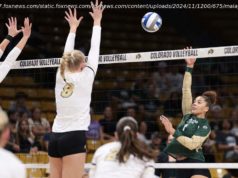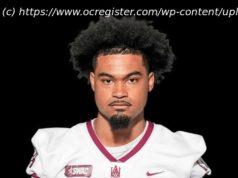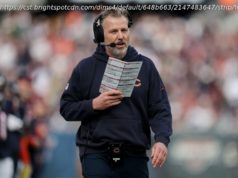For a coach who won more than 800 games, none was sweeter than the 1985 N. C. A. final against Georgetown.
Rollie Massimino, who coached Villanova University to one of the greatest upsets in N. C. A. basketball history, the defeat of powerful Georgetown to win the 1985 national championship, died on Wednesday in hospice care in West Palm Beach, Fla. He was 82.
Villanova announced his death on its website.
Massimino, who struggled with lung cancer and its complications in recent years, had coached through last season at Keiser University in West Palm Beach, where he came out of retirement to found its basketball program in 2006 and turned it into a small-college power.
Keiser was the final stop in a long career that began when he was a high school coach. But it was at Villanova, where he led the men’s team for 19 years and compiled a 481-375 record, that he was catapulted to fame as a fiery sideline tactician, fond of inspirational speeches that drew on his Italian heritage.
In 1985, Villanova was a good team from a powerful Big East Conference, but with 10 regular-season losses it considered itself fortunate to be selected for the N. C. A. tournament. It was seeded eighth in their division.
The Wildcats proceeded on a run of narrow victories, including by two points over Dayton, four over Michigan and three over Maryland in the early rounds.
By the time the team slipped past Memphis State in the national semifinals at Rupp Arena in Lexington, Ky., Villanova had the look of a Cinderella team. But its Big East Conference rival Georgetown and Patrick Ewing, the team’s all-American center, loomed in the title game, and few people gave Villanova much of a chance against the Hoyas, who arrived for the showdown with a gaudy 35-2 record and a national title already under their belt.
Massimino was known for his ability to confuse opponents with zone defenses, but it was a painstakingly deliberate and efficient Villanova offense that was the difference in its 66-64 victory over Georgetown. The Wildcats made 22 of 29 shots that night, or 78.6 percent, including 9 of 10 in the second half.
“As close to the perfect game as any team has ever played, ever, ” P. J. Carlesimo, who coached Seton Hall, another Big East team, told Sports Illustrated in 2015.
Massimino remained at Villanova for seven more years, though he had almost left to accept the head-coaching job with the New Jersey Nets. When he did leave, his relationship with Villanova cooled, and two subsequent unsuccessful seasons at Nevada-Las Vegas ended with the revelation that his contract agreement had violated state guidelines.
His next job took him to Cleveland State, where he had only mild success during a seven-year run that was blemished by player disobedience and institutional dysfunction.
In basketball circles, it is believed that Massimino, while a finalist this year for induction into the Naismith Memorial Basketball Hall of Fame, had been denied entry because of his post-Villanova years, a stretch in which he never returned to the N. C. A. tournament.
Moreover, in March 1987, the Villanova championship was marred by a Sports Illustrated cover article in which Gary McLain, the point guard on the title team, revealed that he had been high on cocaine during much of that 1985 tournament run. He said he had long used cocaine and marijuana and implied that his coach and university knew, a suggestion that Massimino always denied.
Roland Vincent Massimino was born on Nov. 13,1934, in Hillside, N. J., the son of Salvatore and Grace Massimino. His father, an Italian immigrant, was a shoemaker.
Rollie Massimino graduated from Hillside High School and went on to the University of Vermont, where he played for the basketball team for three years. He earned a bachelor’s degree in education there in 1956 and a master’s equivalent in health and physical education from Rutgers University in 1959.
He married Mary Jane Reid in 1958. They retired to Florida after he was fired by Cleveland State in 2003, but Massimino soon grew bored with playing golf. Then he received a telephone call one day from someone he knew from his first head-coaching job, at Stony Brook University on Long Island. It led to his being lured to Keiser, then known as Northwood University, to help begin a basketball program there.
In 2015, Mary Jane Massimino told The New York Times: “He was going down to be a consultant. The next thing I knew, he was coaching.”
Soon after, Massimino announced that his team would play its inaugural home game against Villanova, coached by his former assistant there, Jay Wright. This was news to Wright, who had helped mend the relationship between Massimino and the university that he had put on the national basketball map.
Wright wound up agreeing to take his Wildcats to Northwood’s cramped gym for the 2006-7 season opener. He told The Times in 2015 that he “couldn’ t say no.”
Nor could John Calipari, the Kentucky coach, who hosted Massimino’s Keiser team in a 2012 exhibition game because Massimino had wanted one last chance to coach in Rupp Arena, the site of his career-defining triumph.
Even as he entered his 80s, Massimino remained volatile and irascible. At Keiser’s practices, he would refuse to sit, even after his struggles with cancer, and would occasionally wander into the field of play.
At the start of the 2015-16 season, recovering from a collapsed lung, he was ordered by his doctor not to fly to a game in Vermont. He took the train instead.
“I thought he was foolish taking the train all the way up there, but I wasn’ t surprised, ” Ms. Massimino told The Times. “He takes his job seriously. It’s what he loves, what keeps him active and young.”
In addition to his wife, Massimino is survived by three sons, Tom, R. C. and Andrew; two daughters, Lee Ann and Michele; and 17 grandchildren. R. C. Massimino was a member of Villanova’s 1985 team.
Massimino never lost touch with those championship Wildcats. During his years in Florida, he coached the sons of two players from that team, Ed Pinckney, who had a successful N. B. A. career, and Dwayne McClain, and a group of them would visit him most years for a weekend in February, dining on Mary Jane Massimino’s pasta and sleeping over on spare beds and air mattresses.
Home
United States
USA — Sport Rollie Massimino, 82, Dies; Rode Dark Horse Villanova to Basketball Glory






